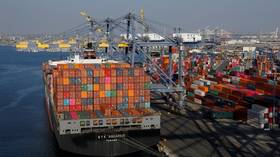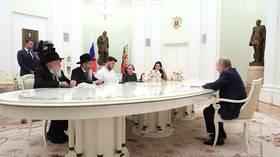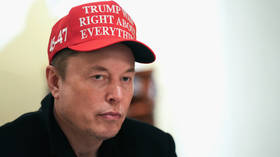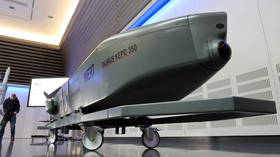Higher tariffs & currency devaluation don’t solve trade disputes, IMF warns US & China

The International Monetary Fund (IMF) has warned trade war rivals, China and the US, that hiking tariffs only harms both domestic and global growth. The IMF also noted that manipulating exchange rates also doesn't work.
“Higher bilateral tariffs are unlikely to reduce aggregate trade imbalances,” the IMF said on Wednesday.
The Washington-based organization added that imposing levies on imports from countries “deemed to have undervalued currencies,” as the recent US accusation against China, is actually futile. The IMF explained that the tariffs do not necessarily offset the same percentage of a more appreciated or overvalued exchange rate. For example, the average US tariffs on Chinese products have increased by about 10 percentage points since last year, while the yuan fell by about the same 10 percent relative to the dollar, largely as a result of these trade actions and associated uncertainties.
Also on rt.com China vows immediate retaliation if US proceeds with new tariffs“US importers and consumers are bearing the burden of the tariffs. The reason: the stronger US currency has had a minimal impact thus far on the dollar prices Chinese exporters receive because of dollar invoicing,” the statement added.
The IMF called on the sides to find other ways to resolve the trade frictions, like taking into account the underlying macroeconomic and structural sources of trade imbalances. It would be more effective than adopting “ineffective, or even counterproductive, measures such as tariffs” that only divert trade flows to other countries.
Also on rt.com China prepares its 'nuclear option' in trade warAt the same time, the deliberate weakening of one’s own currency has only proven to be ineffective, according to the IMF. It warned that such a policy can have a negative impact on the functioning of the international monetary system.
The US was supposed to hit $300 billion of Chinese imports with new tariffs starting September 1, but the Trump administration has recently backtracked on the threat. The new levies were delayed until December 15, possibly leaving room for the two sides to hammer out a long-anticipated trade deal.
For more stories on economy & finance visit RT's business section















